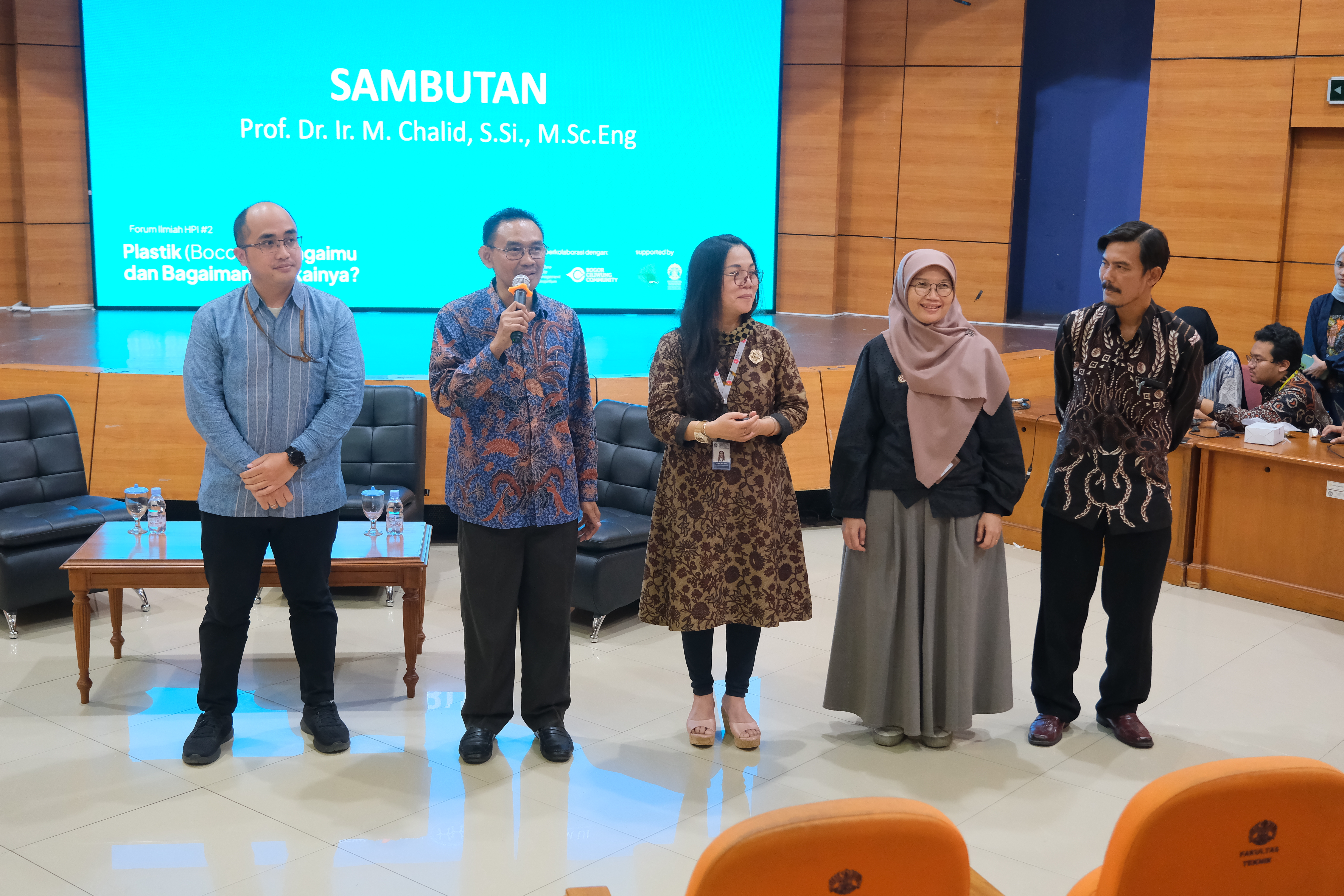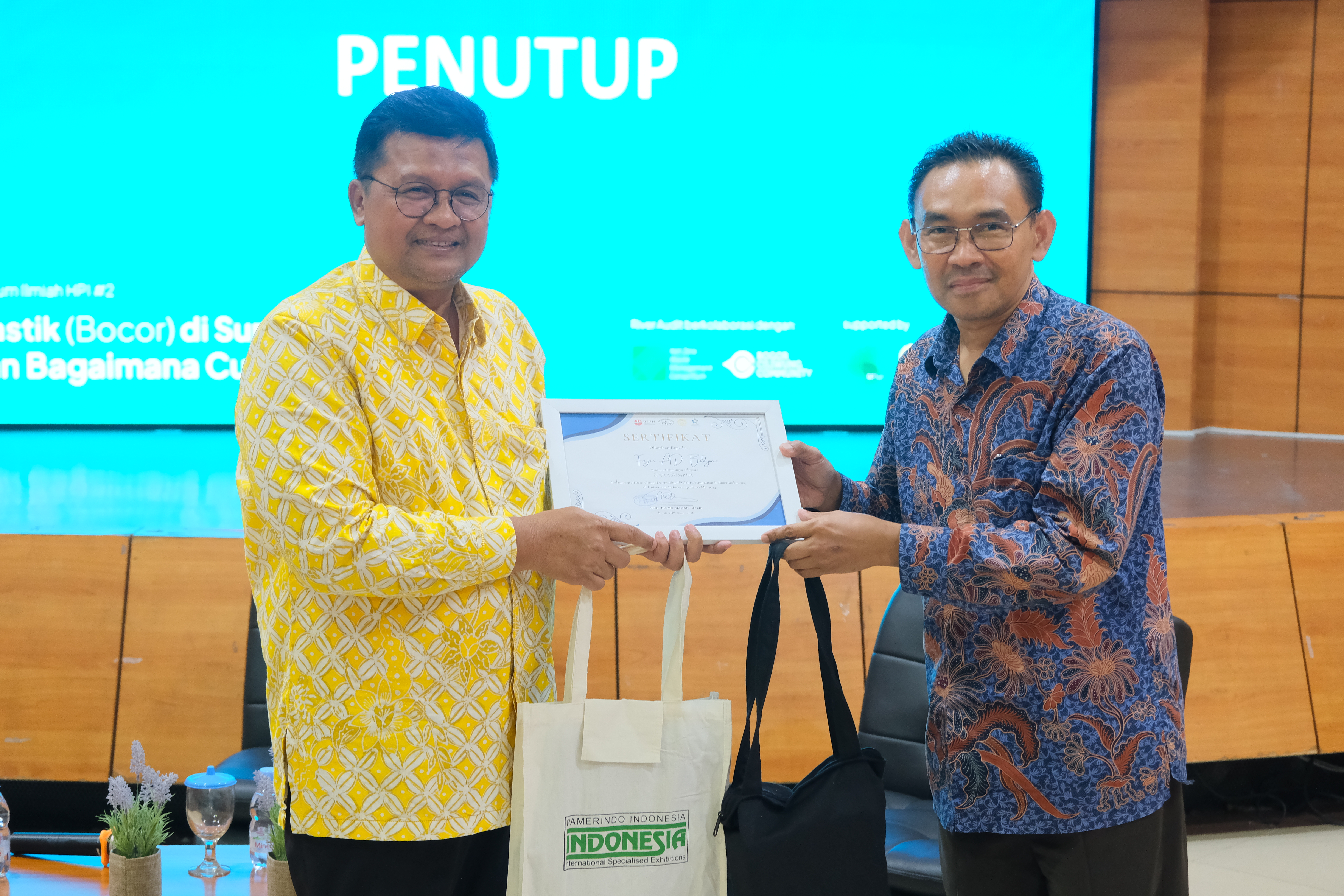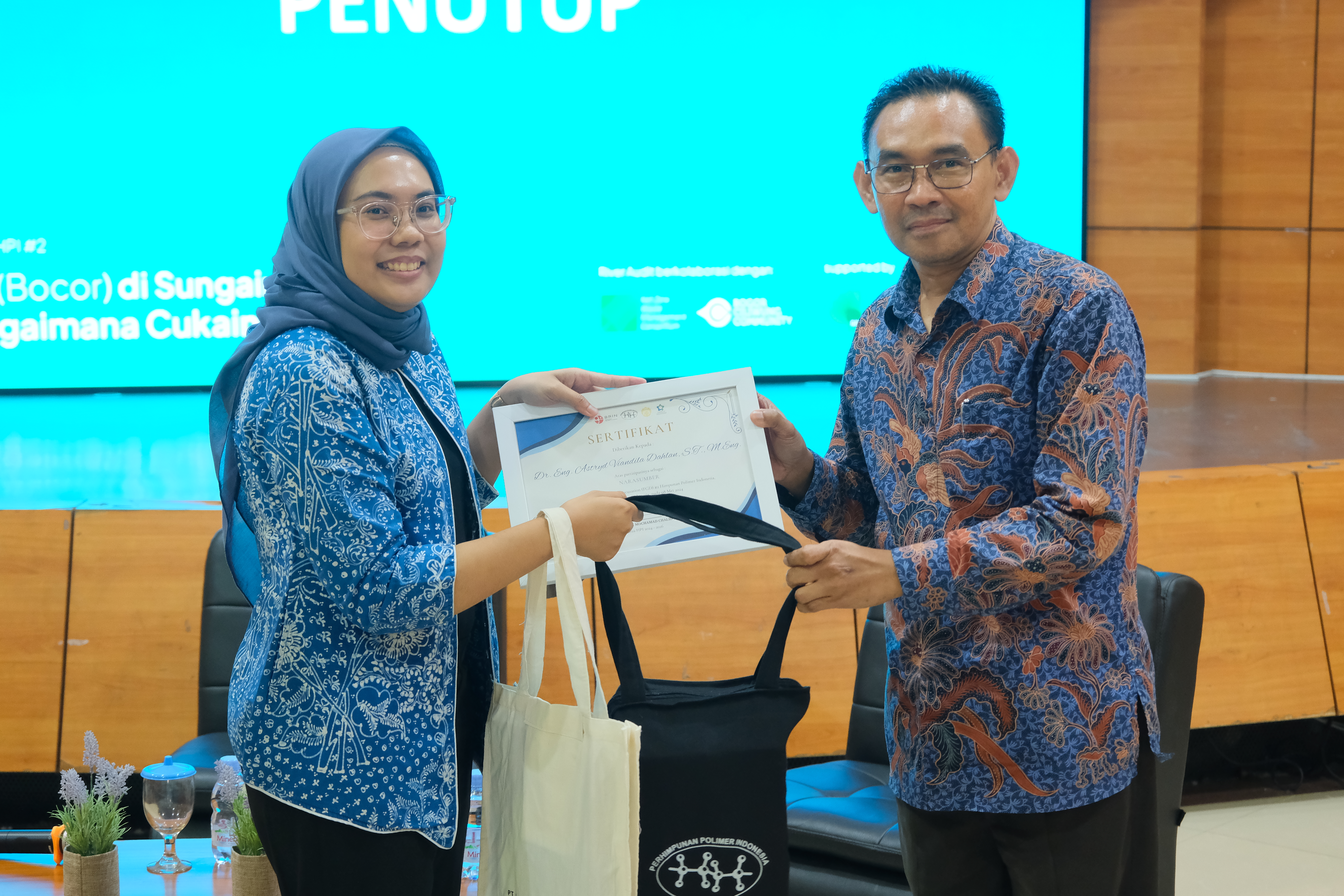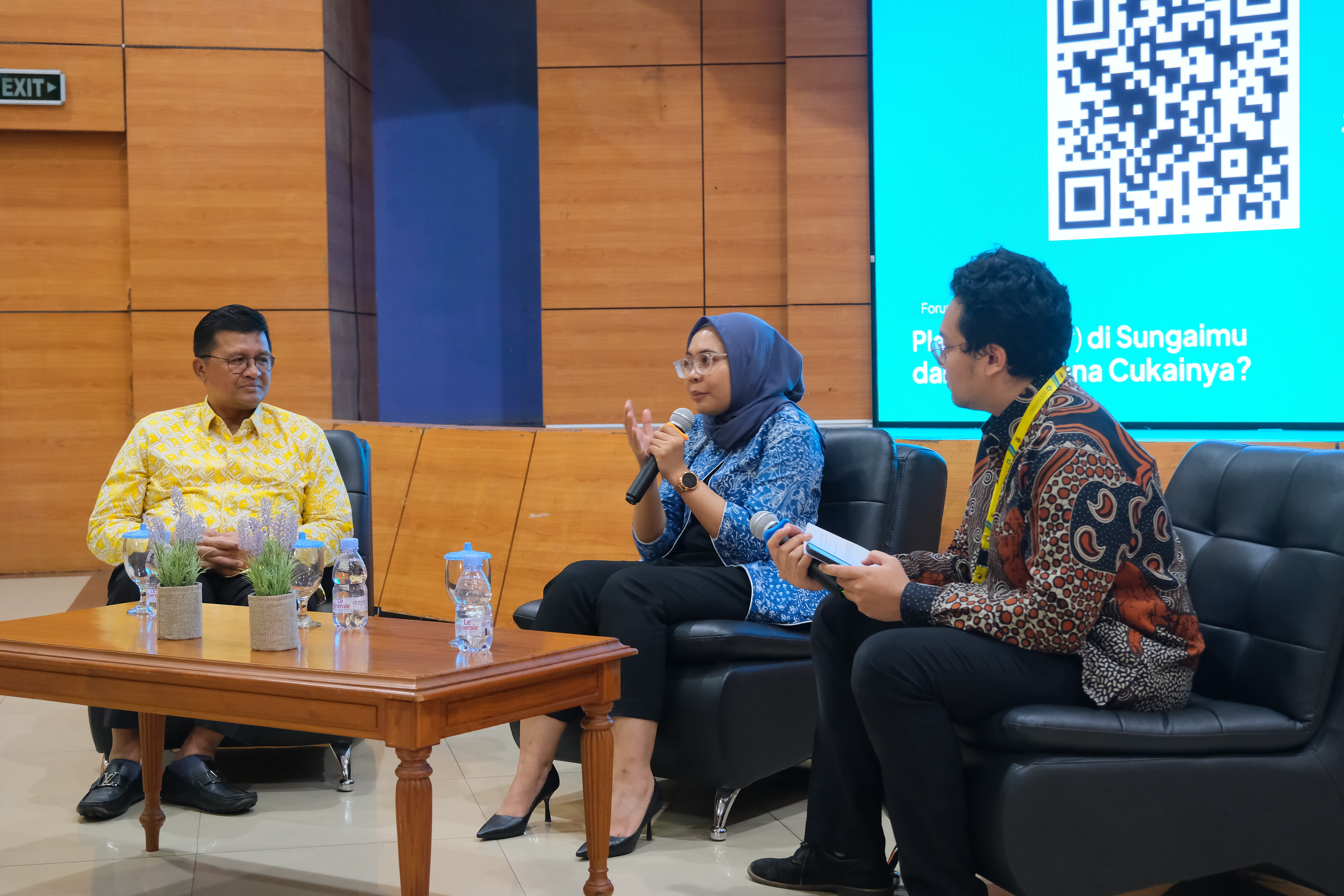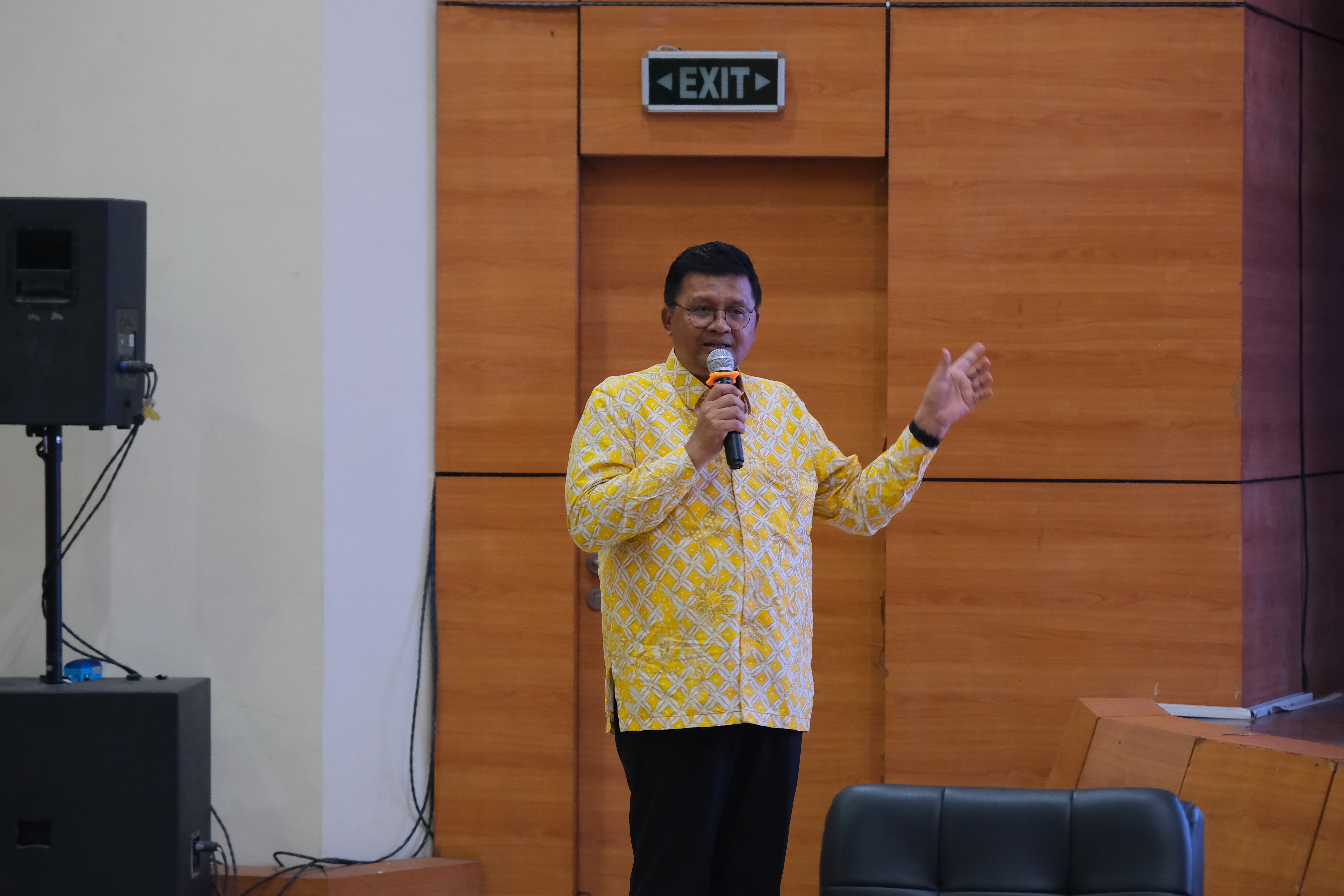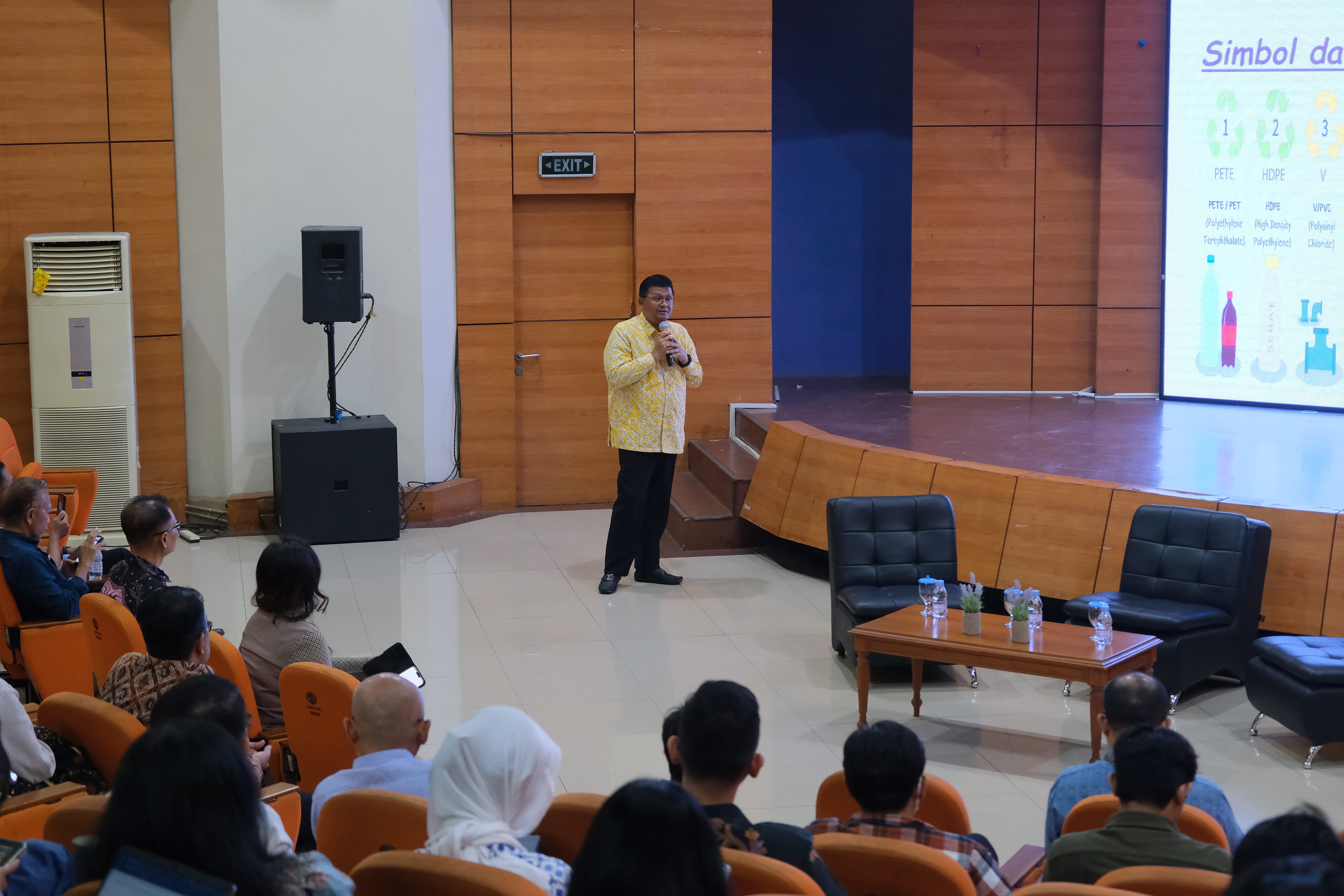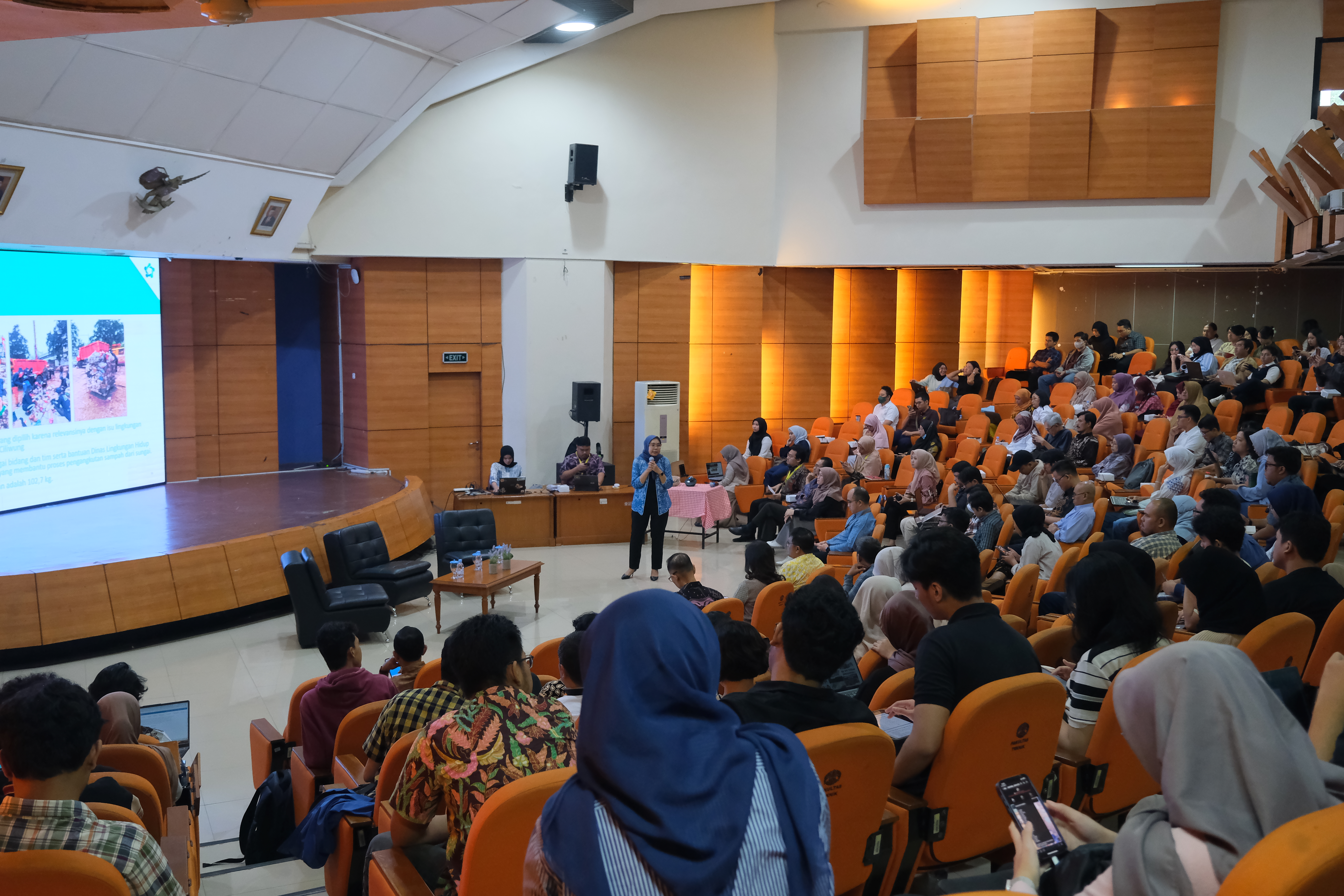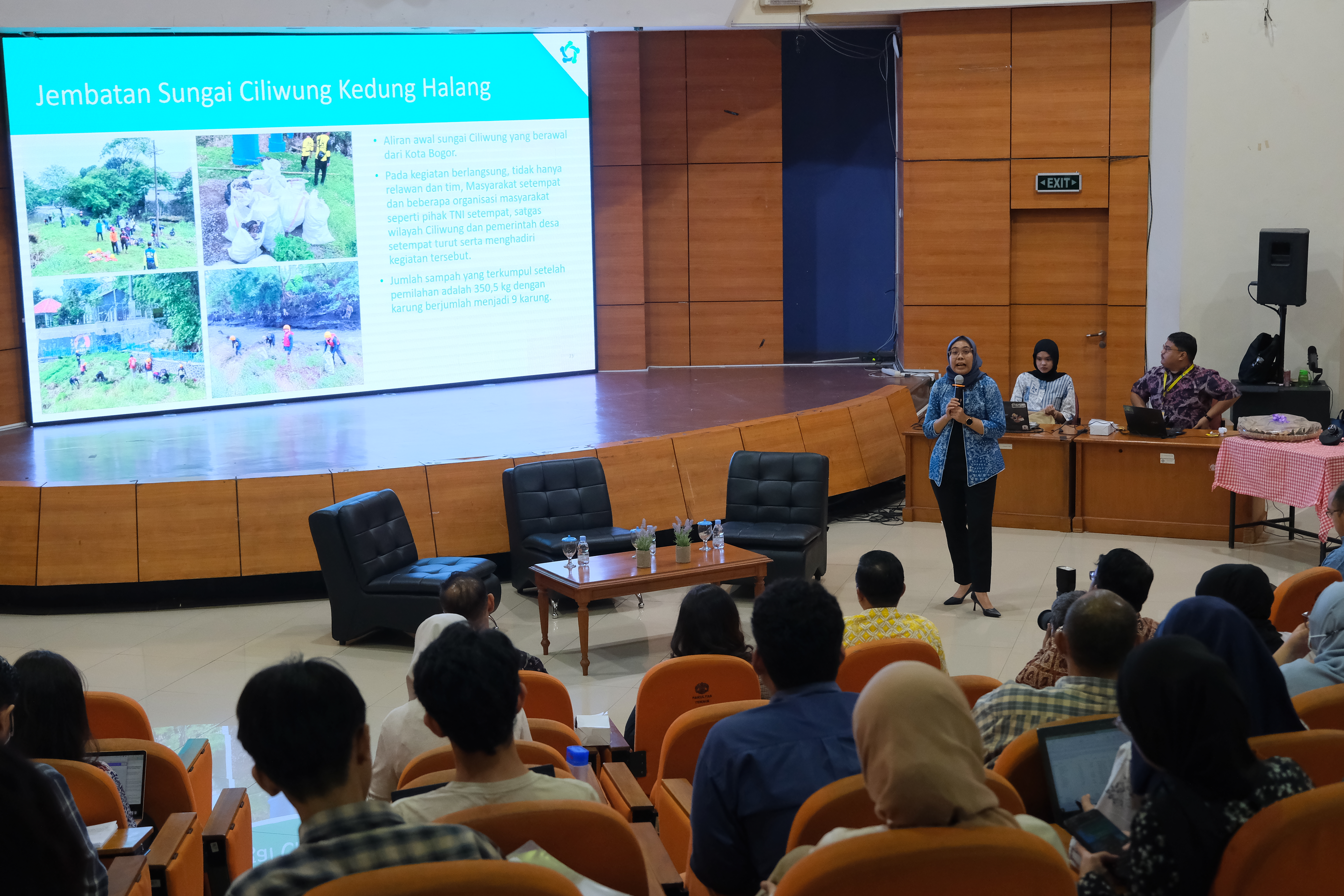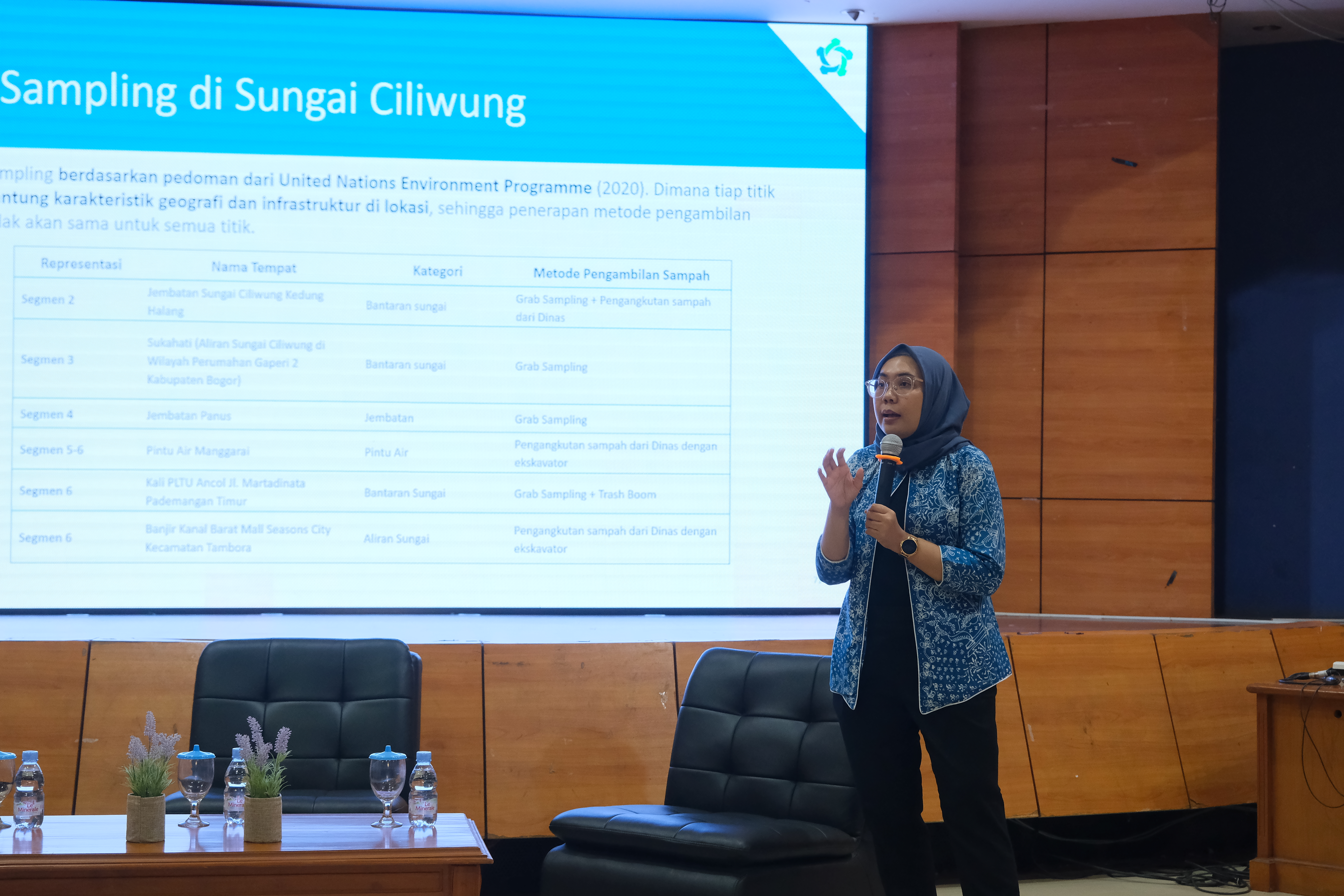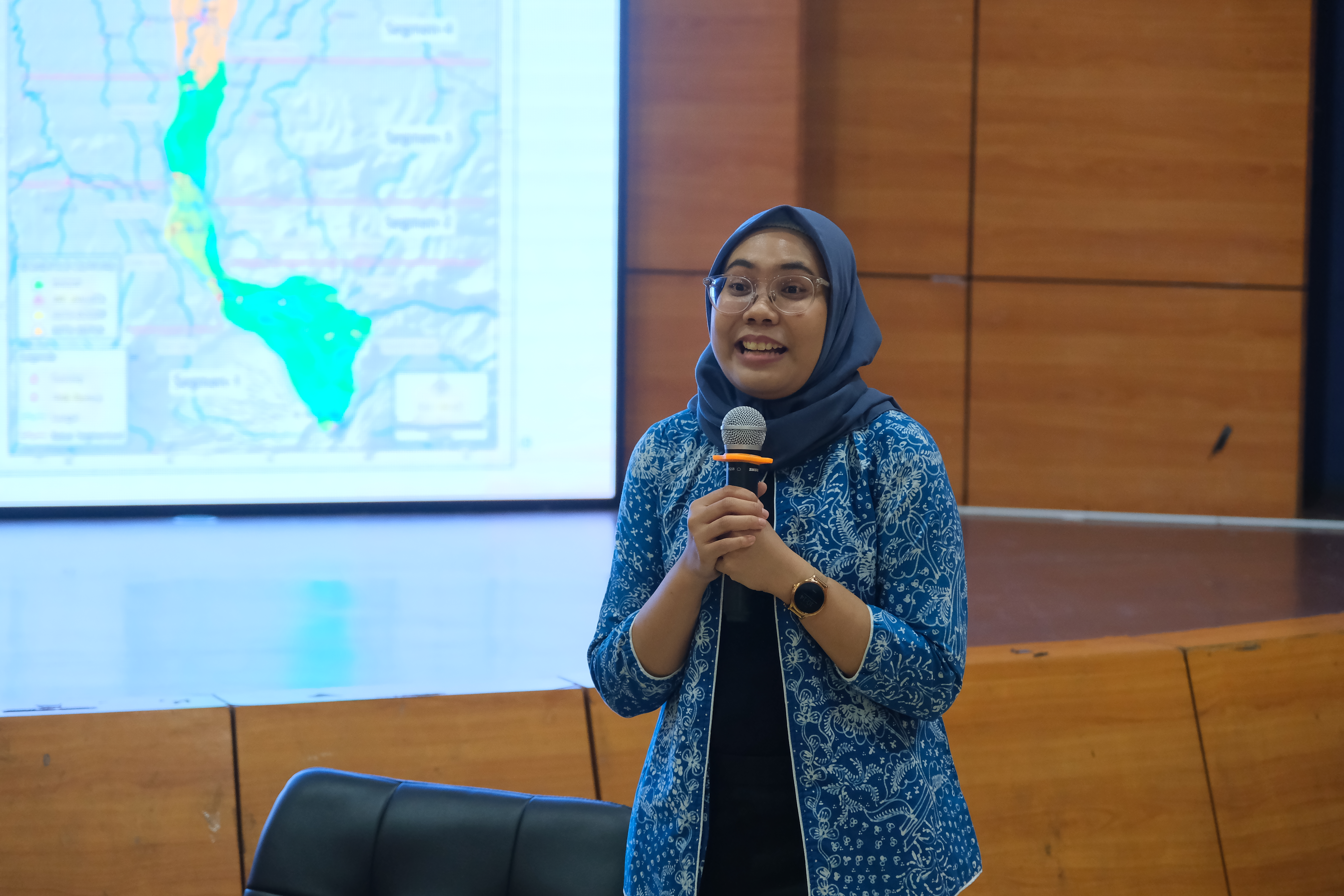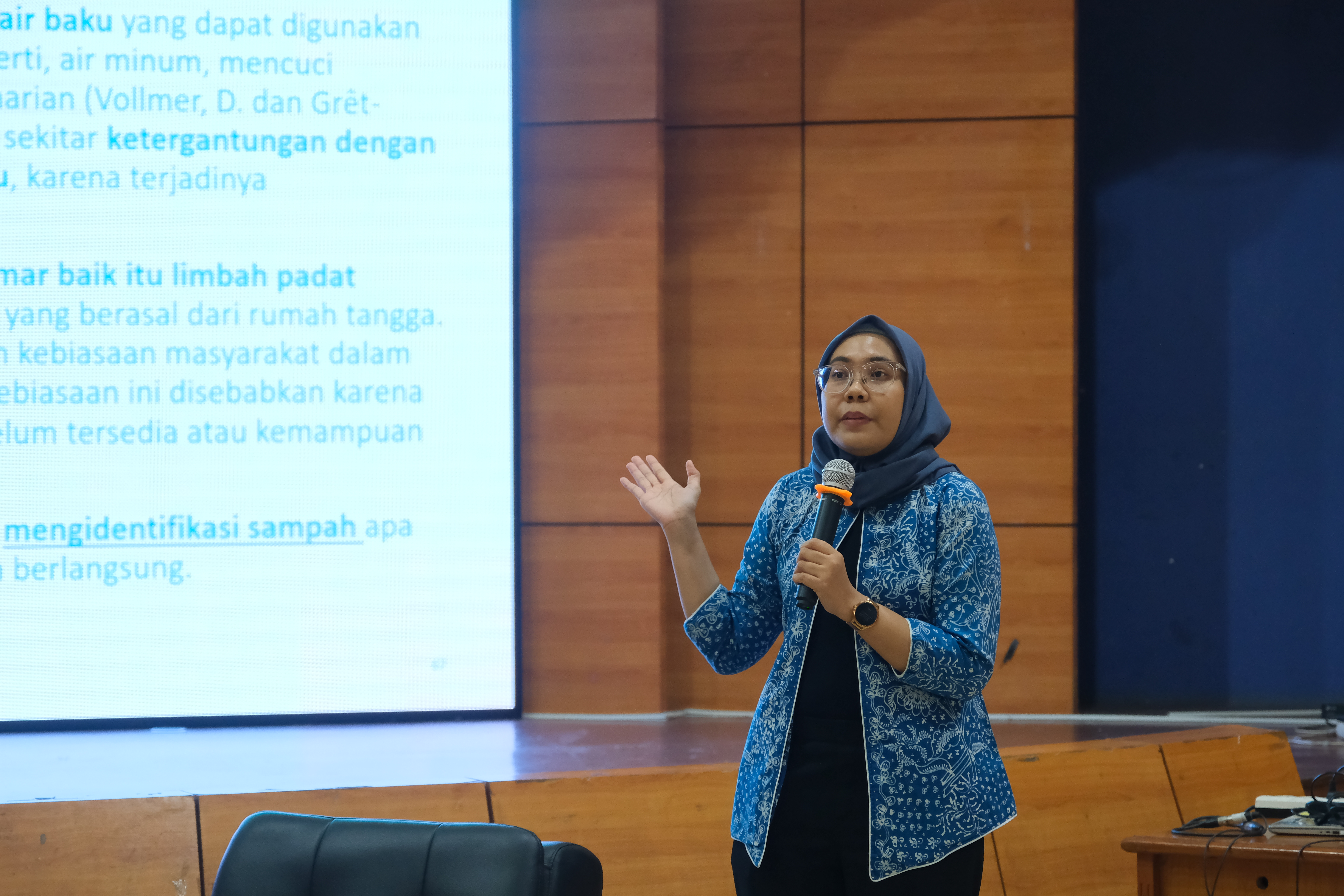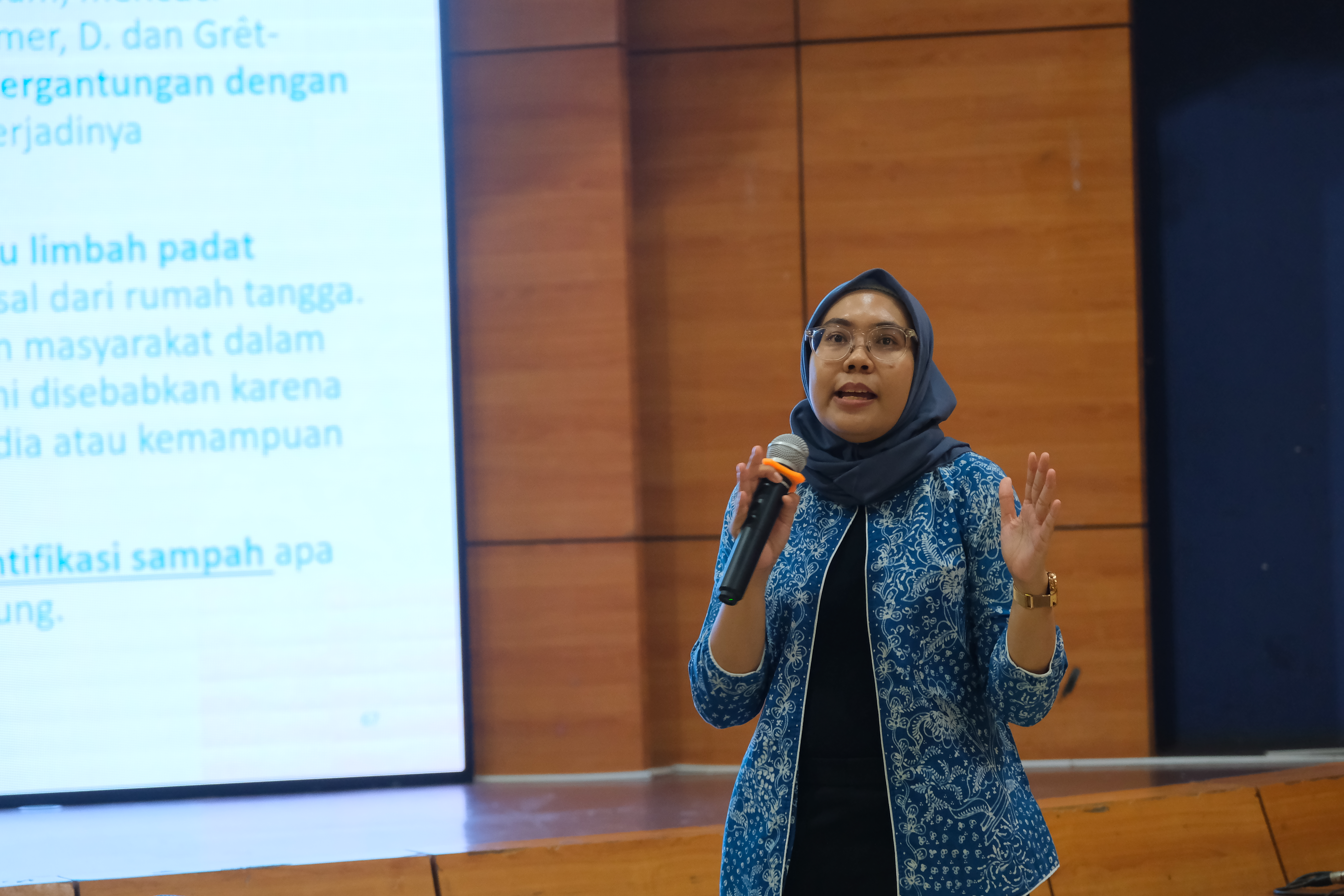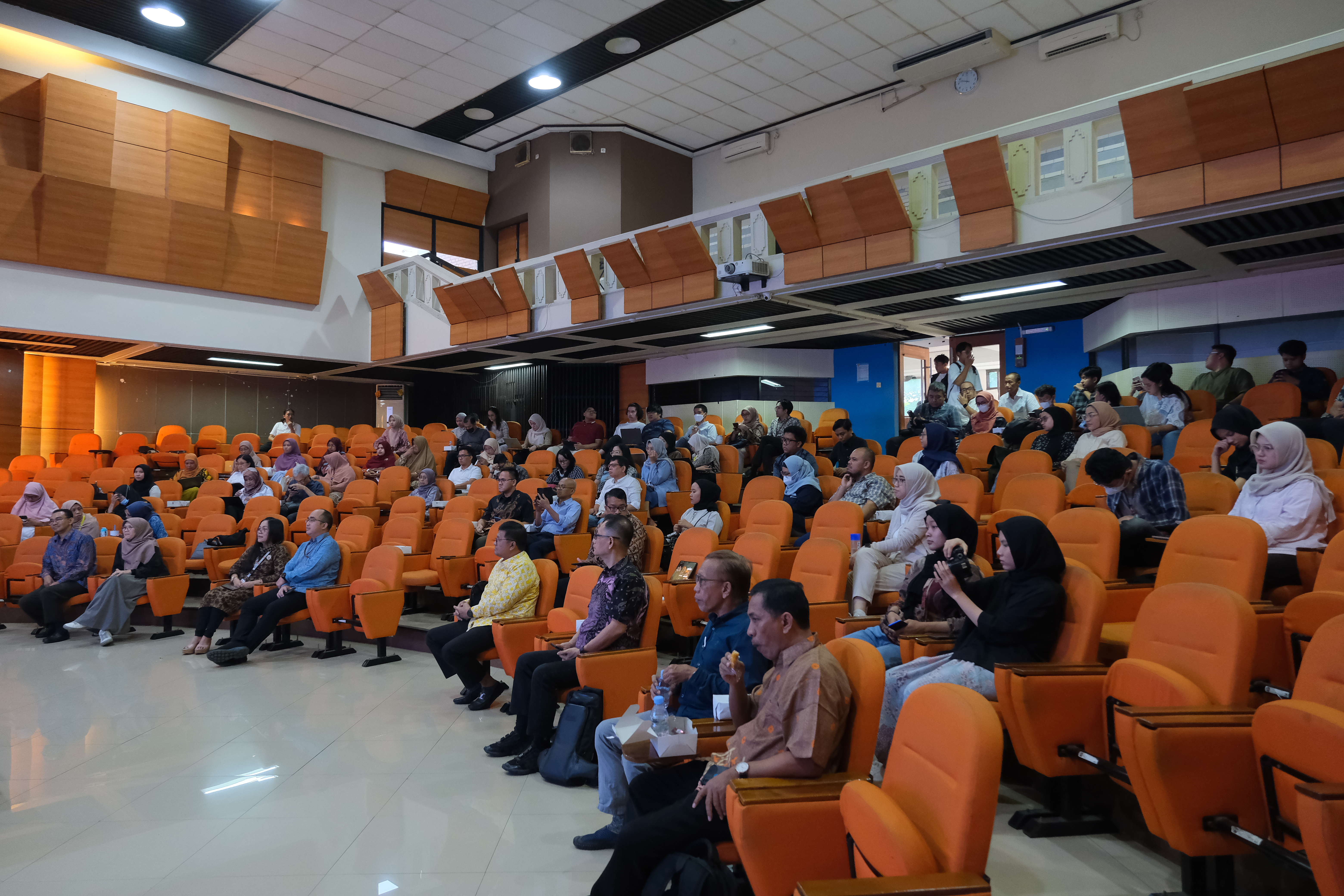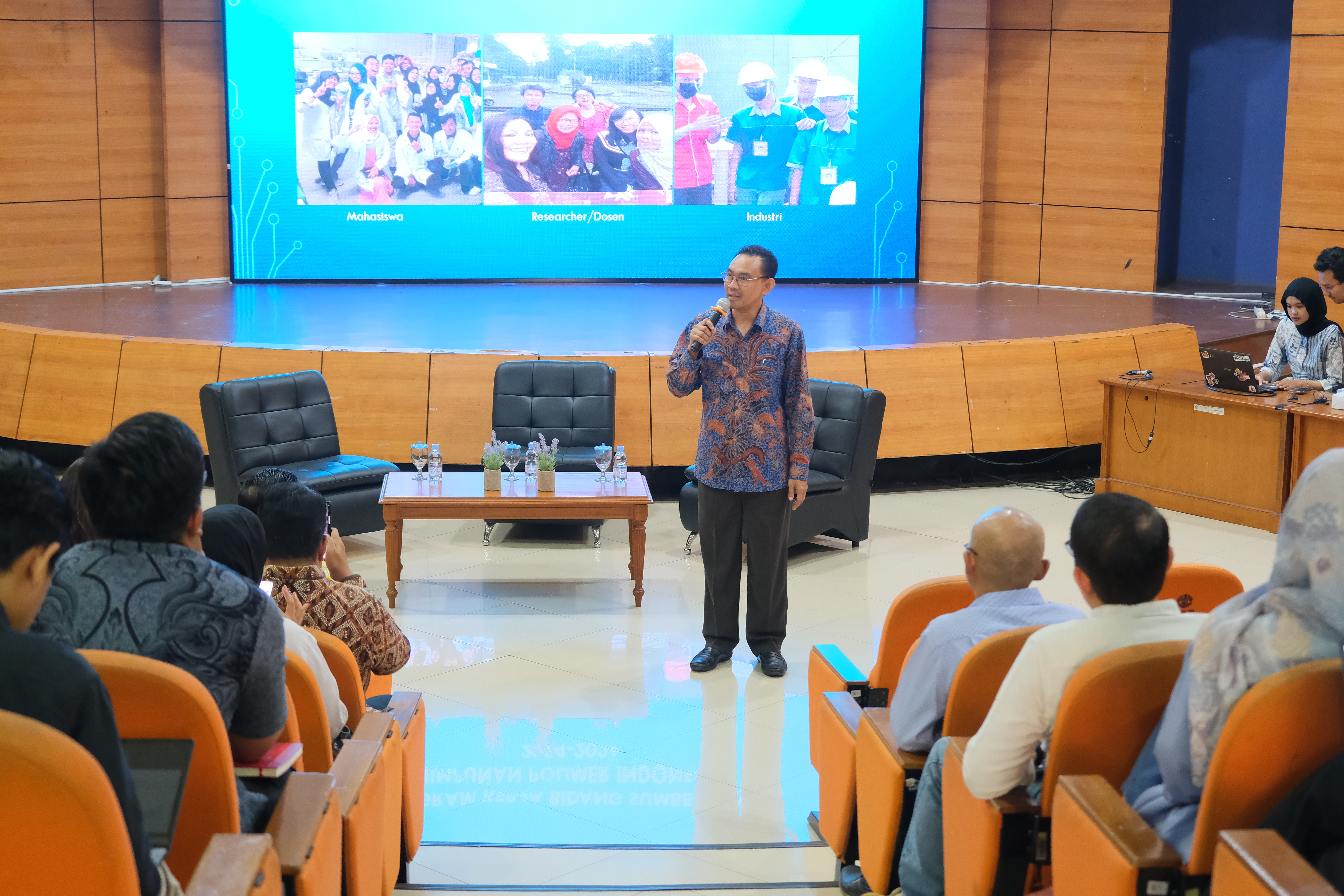To enhance synergy among polymer enthusiasts in Indonesia, the Center for Sustainability and Waste Management UI (CSWM UI) collaborated with the Indonesian Polymer Association (HPI) to hold the HPI Scientific Forum 2 with the theme “Plastic (Leaks) in Your River and How to Tax It?” on Wednesday, May 8. This event was held at the K-301 Auditorium FTUI both offline and online via the CSWM UI YouTube channel, and attended by HPI members, BRIN, FTUI students, and several companies in Indonesia. Dr. Mochamad Chalid, S.Si., M.Sc opened the eventM.Sc.Eng., Head of CSWM UI and Chairman of HPI, discussed how plastic waste has become a long-standing problem in Indonesia. As a concern towards this issue, in December 2023, CSWM UI together with the Net Zero Waste Management Consortium and the Ciliwung Care Community organized the Youth for Ciliwung River Cleanup, aimed at understanding the waste management patterns around the Ciliwung River.
Through this forum, CSWM and HPI brought in speakers Dr. Eng. Astryd Viandila Dhlan, S.T., M.Eng., a lecturer in Environmental Engineering and CSWM UI expert team member, and Fajar AD Budiyono, Secretary General of INAPLAS, to present on the topic “Results of Waste Sampling in the Ciliwung River and Plastic Tax.”
Based on the waste sampling results from the Ciliwung River Cleanup, 32,364 pieces of waste were sorted from six points. Ten types of waste were found, seven of which were polymer materials including fabric, rubber, wood, paper, metal, plastic, and styrofoam. However, the most frequently found waste at each point was small-sized plastic in the form of sachets or packaging. These multilayer plastics are difficult to recycle because the layers are hard to separate, each having different compositions and processing methods.
On the other hand, based on data analysis by the CSWM UI expert team, several trends were identified. Three types of waste dominated the findings: plastic-based waste, fabric, and styrofoam, commonly used as food and clothing wrappers. Plastic waste was the most consistently found at various points, mostly in the form of plastic bags, both intact and shredded, with a total accumulation of 19,466 pieces or about 67.88% of the total waste collected and sorted. This was followed by plastic wrappers and sachets, each accounting for about 3,974 and 3,324 pieces or around 13% and 11% of the total waste.
The size of the waste found also indicates waste management trends where the informal waste management sector, such as scavengers, prefers to collect waste that is easier to recycle and economically more profitable. Astryd, an expert from CSWM UI, stated, “One thing producers can do in response to this trend is to upscale packaging sizes, making them easier to sort and process.”
Additionally, discussing the plastic tax in Indonesia, Fajar AD Budiyono explained that the current implementation faces challenges where the production of taxed plastic goods must be separated from non-taxed goods. “This results in additional production machinery, factory layout changes, and extra production space, requiring additional investment for the implementation of the plastic goods tax. Moreover, increasing plastic tax targets will create new taxable objects in plastic goods, weakening the competitiveness of local plastic goods against imported products, and reducing local purchasing power.”
CSWM UI hopes the findings from this program will raise awareness among both producers and consumers to process plastic waste into high-value products, preventing it from becoming a persistent issue. As Prof. Chalid emphasized in his presentation on plastic waste, “Managing plastic waste is a shared responsibility of all stakeholders, including industry, policymakers, and society as consumers of the produced goods.”
On a separate occasion, the Dean of FTUI, Prof. Dr. Ir. Heri Hermansyah, ST., M.Eng., IPU., expressed, “I hope this program increases awareness among producers and the public in addressing plastic waste, working together with the government to sort and process plastic waste. This also provides opportunities for HPI and CSWM UI to address future plastic challenges by innovating in material substitution or creating more environmentally friendly plastic properties, and processing them into reusable finished products.”
***
Public Communications Office
Faculty of Engineering, University of Indonesia

